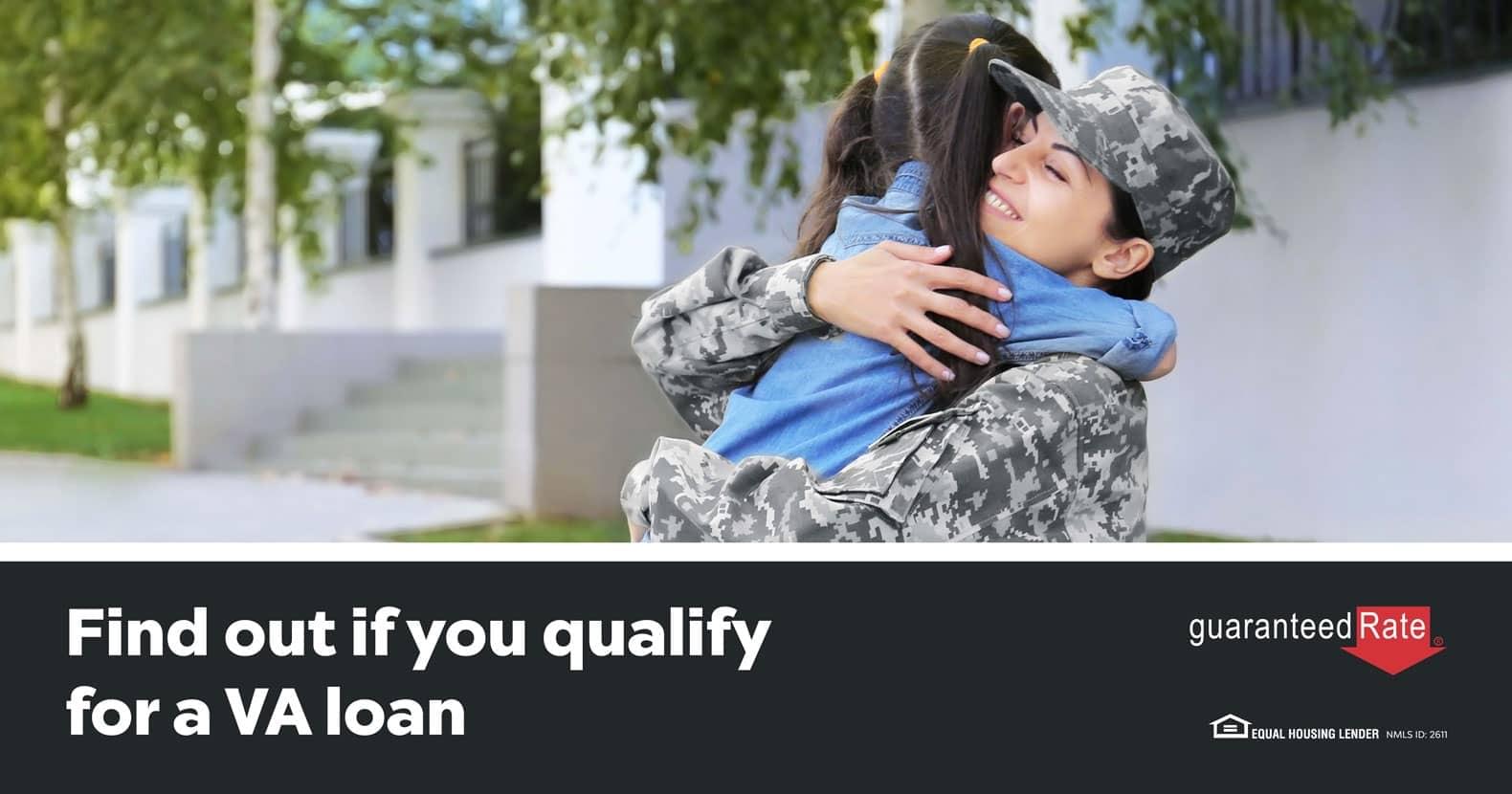The VA cash out refinance: explained


VA cash-out refinance allows veterans who have conventional or access to the equity they have built up in their home while changing the terms of the loan. With a VA you will replace your current mortgage with a newer mortgage at a higher amount, giving you the cash difference after closing. Unlike other loans, a VA cash-out refinance allows you to access up to 100% of the equity you have accumulated while in your home.
The principal of your loan will increase with a VA cash-out refinance. This can potentially extend the life of your loan, leading you to pay more interest over time.
Your VA cash-out refinance could be used for a number of investments and expenses such as: home improvements, education, medical bills, car repairs or investment opportunities.
Requirements for VA cash-out refinance
Each lender will have their own rules and guidelines for a VA cash-out refinance. To know exactly what requirements you need to meet for this, you will have to talk to your lender. Some of the qualifications to be approved for a VA cash-out refinance are:
- Having sufficient equity in your home.
- It must be at least 210 days after your first VA home loan monthly payment.
- You will need proof that you live in the property.
- Typical you will need a minimum credit score of 620 (though the VA doesn’t require a minimum score this can depend on the lender).
VA cash-out refinance costs
There are costs that come with your VA cash-out refinance. The fees can sometimes be added to your loan which could reduce your lump sum at closing and increase the cost of your monthly payments.
Funding fees
The first time you cash-out refinance your VA loan the is 2.15% of the total loan amount. Every time you choose to cash-out after that initial one, your funding fee will increase to 3.3% of the total loan amount. Keep in mind that unless you are refinancing to a VA mortgage, the fee will be 3.3%. However, disabled veterans and surviving spouses may be exempt from funding fees.
Appraisal fees
VA cash-out refinances require a fresh appraisal to help determine the current market value of your home. This appraisal will let you know how much equity is in your home. The price of this anywhere from $314 to $423, but the final cost will be dependent on several factors including property size, detail of appraisal and condition of the home.
Closing costs
Similar to buying a home, refinancing will come with its own closing costs. Closing costs can include lender fees for loan processing, for pulling your credit report you can have credit report fees and even attorney fees if you need any legal review of documents. These fees are normally between 1% and 5% of the total loan amount.
VA streamline refinance vs. VA cash-out refinance
A VA streamline refinance does not provide you with cash like a VA does. Instead, VA streamline refinances, officially named Interest Rate Reduction Refinance or IRRRL for ease, could cut down on your monthly payments through lowering the interest rates on your mortgage to match the current VA loan amount.
Your IRRRL does come with closing costs, most notably being a funding fee. The funding fee for your IRRRL is 0.5% of your loan amount. This one-time funding fee can be included into your monthly payments, which lets you pay it off over the life of your loan.
Alternatives to the VA cash-out refinance
If a VA cash-out refinance doesn’t seem like the best option for you, these are a few of the alternatives you could explore.
Home equity loan
Home equity loans are a kind of second mortgages that let you borrow against the equity built in your home. These could be a great option for one-time expenses such as college tuition, renovations or home upgrades. This additional loan is on top of your first mortgage, keeping the terms of that first loan in place.
HELOC
A (HELOC) opens a line of credit based on the amount of equity you’ve built in your home. A HELOC is great for when you aren’t sure how much you need to borrow. Most HELOCs open a revolving line of credit that you can borrow from for a specified amount of time. During that time, you will only need to pay interest on the money you are borrowing. After that you will need to pay the amount you borrowed and the interest on that. Since you only have to borrow what you need, you don’t need to pay interest on money you don’t use.
Some lenders, like Rate, offer a Figure HELOC where you will be given the full amount you need. As you pay that amount down you will have the option to make additional draws. Your original amount and additional draws come with their own fixed interest rate. Your additional draws could have higher interest rates.
Personal loan
Unlike other kinds of loans, you don’t have to use a personal loan for any specific purpose. Personal loans are typically unsecured loans, meaning that they don’t require any collateral and can have higher interest rates on your monthly payments. Personal loans are a great option when borrowers are looking to consolidate debts.
does not require collateral and is paid back monthly over 1-5 years at a fixed interest rate. A personal loan from Rate can get approved in minutes and you will receive your funds in 1-2 business days. You can use Rate’s personal loan for things like debt consolidation, home remodels or to cover unexpected bills.*
How to start your VA cash-out refinance
If you meet all the requirements, starting your VA cash-out refinance is as easy as bringing your required documentation to a lender. These documents include your Certificate of Eligibility from the VA to prove you qualify, credit score, income and original loan document. Your lender can help you through the VA cash-out refinance process and give you a timetable of how long your cash-out refinance will take.
If you are ready to start accessing your home’s equity through a VA cash-out refinance loan, apply now and !
* Loans are made by Guaranteed Rate, Inc. (NMLS ID 2611).
Standard fixed rates from 9.99% to 21.99% APR. With a 0.25% autopay discount established at loan origination with an automated monthly debit from a qualifying deposit account for repayment, fixed rates range from 9.74% to 21.74% APR. Loan amounts range from $4,000 - $50,000 and are subject to state requirements. Loan proceeds cannot be used for post-secondary education expenses or to purchase cryptocurrency or securities.
Terms and Conditions: You must be 18 years of age or older (19 years of age or older in Alabama). To qualify, a borrower must be a US citizen, a permanent resident, or a non-permanent resident in the US on a valid, long-term visa. All loan applications are subject to credit review and approval as well as income and employment verification. You must meet our minimum requirements established for this offer including, but not limited to, credit history, debt-to-income ratio, and application information. Your actual rate depends on your requested loan amount, loan term, creditworthiness, and a variety of other factors. Loan amounts range from $4,000 - $50,000. Rates and loan amount may differ due to state-specific requirements and may impact your ability to qualify for a loan. Limitations: AR, CO, FL, KS, LA, MA, ME, MN, NC, PA, RI, TX, VT, WI and WY (rate); AK, CA, IL, MA, NH, NM, RI and SC (amount); OH (duration). The lowest rate advertised is reserved for the most creditworthy borrowers. Advertised rates and terms are current as of 02/21/25 and are subject to change without notice.
An origination fee of 0%-6% is charged for each loan, which will be deducted from any loan proceeds you receive, and are subject to state requirements. Restrictions apply, please refer to rate.com/personal-loans for more information.
Personal loans are only available in AK, AL, AR, AZ, CA, CO, CT, DC, DE, FL, GA, IA, ID, IL, IN, KS, KY, LA, MA, MD, ME, MI, MN, MO, MT, NC, ND, NH, NJ, NM, OH, OK, OR, PA, RI, SC, SD, TN, TX, UT, VT, WA, WI and WY as of 02/21/25. Loan applications outside of these states will not be accepted at this time.
Applicant subject to credit and underwriting approval. Not all applicants will be approved for financing. Receipt of application does not represent an approval for financing or interest rate guarantee. Refinancing your mortgage may increase costs over the term of your loan. Restrictions may apply.
Using funds from a Cash-out Refinance to consolidate debt may result in the debt taking longer to pay off as it will be combined with borrower’s mortgage principle amount and will be paid off over the full loan term. Contact Rate for more information
Rate is a private corporation organized under the laws of the State of Delaware. It has no affiliation with the US Department of Housing and Urban Development, the US Department of Veterans Affairs, the Nevada Department of Veterans Services, the US Department of Agriculture, or any other government agency. No compensation can be received for advising or assisting another person with a matter relating to veterans’ benefits except as authorized under Title 38 of the United States Code.
Rate has no affiliation with the US Department of Housing and Urban Development, the US Department of Veterans Affairs, the US Department of Agriculture or any other government agency.




